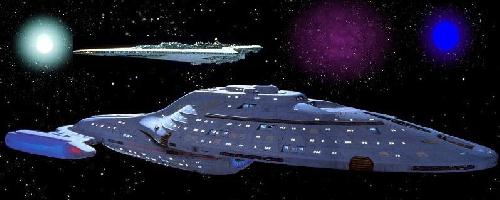
For Star Wars, the movies are regarded as the ultimate "canon" and cannot be refuted. Books, technical manuals, games etc, are often described as 'official' and are of a lower order. Lucas himself has stated that he does not consider himself bound by anything in the novel or TMs etc (an examination of the problem of the Star Wars expanded universe can be found here.) Therefore, if a book disagrees with a film in any way, the book is wrong, regardless of how many books say the same thing. A good example of this comes from the "Return of the Jedi" novel. At the end of the book, we have a statement that says... "Wedge tore out of the superstructure at barely sublight speed." However, when we watch the movie, we can clearly see that Wedge's X-Wing was not travelling at anything like "barely sublight speed" (i.e about 250,000-300,000 kilometers a second!). If he had really been travelling at that speed, he would have been travelling too fast to see with the naked eye, and would have crashed into Endor and killed himself long before our slow brains could even know that he had left the Death Star! Therefore, the novel is wrong and we simply ignore that statement. However, just because the novel is wrong on that point, it doesn't mean the rest of it is wrong. Therefore we accept the novels, unless they specifically contradict the movies, in which case the movies always win.
So what does this mean to the story and any debate? Well simply this. If something is stated in any of the films or series for either universe, it is considered to be correct, even if conflicts with books, games or even real world science. The key factor to bear in mind is to be reasonable. Fanatics will argue that just because something has never been stated or shown in a canon source, it is not true, regardless of whether it makes sense. That logic would quickly lead us to believe that a Star Destroyer or a Federation starship have no toilets, since they have never been shown in a canon source. It must have been a very long five year mission for Kirk and crew if that were true. Of course they have toilets. Why? Simply because it is sensible, logical and reasonable to assume they do. On the other hand, that doesn't mean that you can start giving ships and character abilities which they have never been shown to possess. You could say that Federation ships are immume to turbolasers. It has never been stated that they are, and there is no logical reason to assume that they should be. Therefore, unless you can prove it, don't expect anyone to believe you. As I said before, be reasonable and your debates will not become too fanatical.